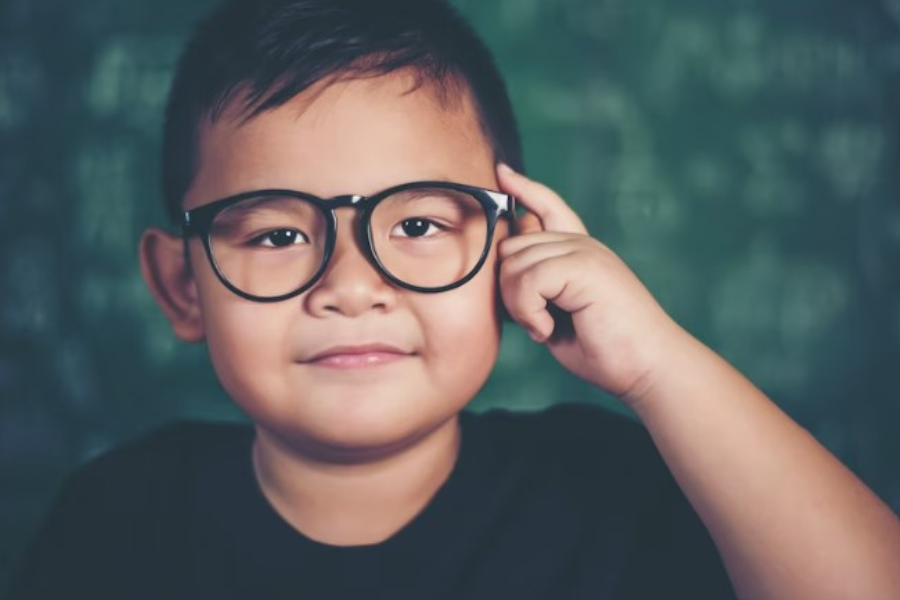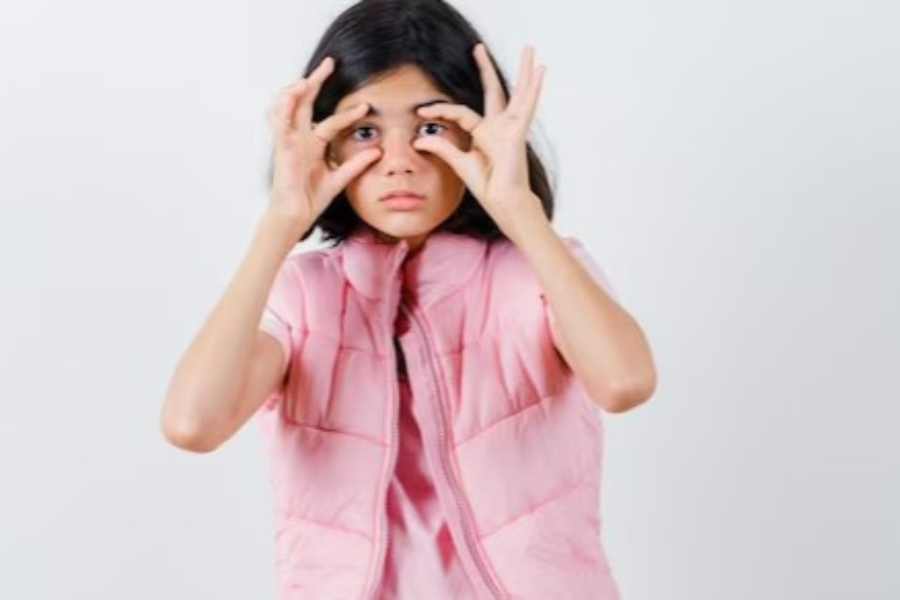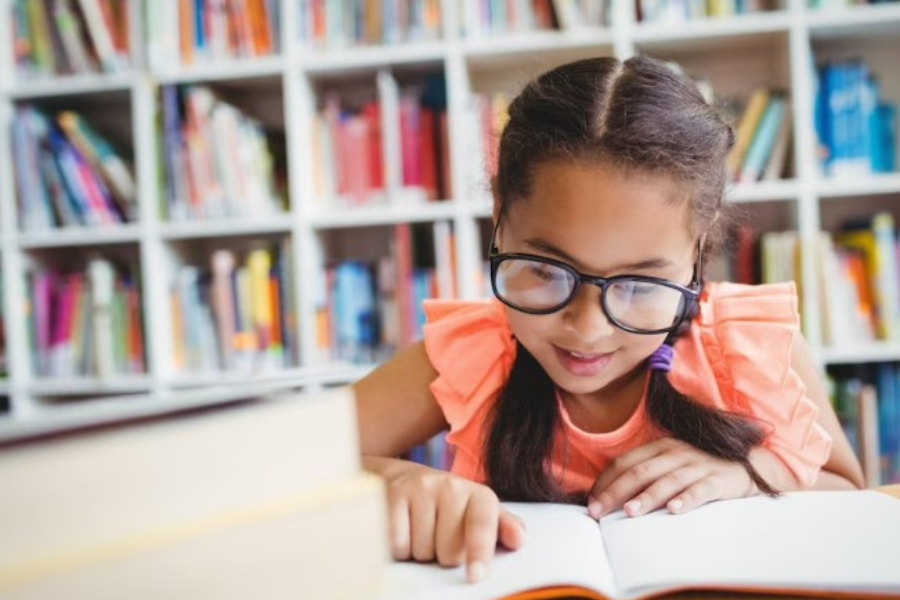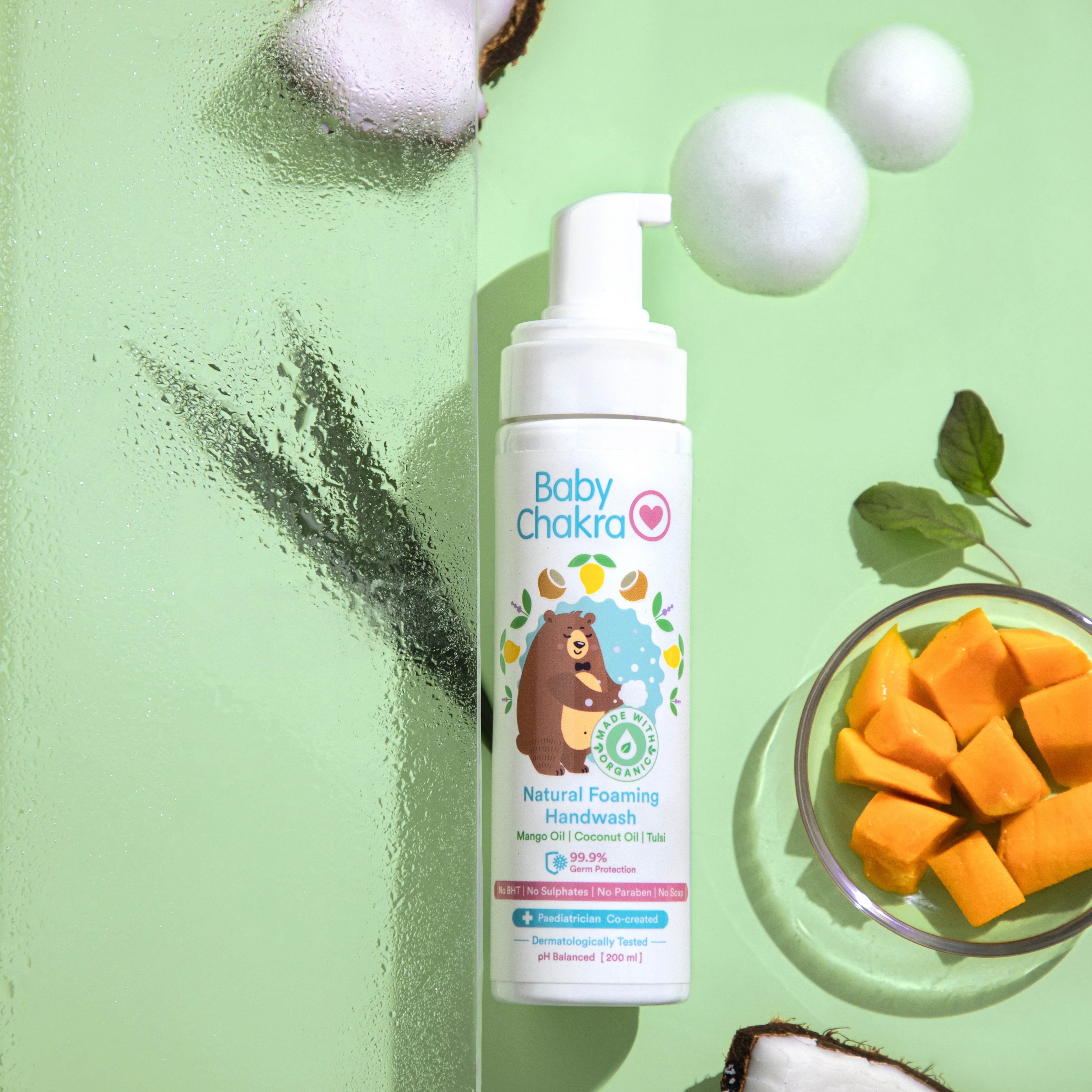
Vision Problems In Kids: How To Know If Your Little One Needs Glasses
30 May 2023 | 6 min Read
Sudeshna Chakravarti
Author | 799 Articles
The ability to see the world clearly is immensely crucial to your child’s development. But in some cases, vision problems in kids may affect this capability, which may further impact their overall growth and development. While some kids are born with vision impairment, others may develop eyesight issues while growing up, which are only picked up during a visit to the ophthalmologist.
The good news is that many vision problems if detected early, can be corrected with glasses. So read on to know more about common vision problems in kids, and signs that imply your little one needs glasses STAT.
Common Vision Problems In Kids

Common vision problems in kids include myopia, hyperopia, or amblyopia / Image credit: Freepik
There are various eyesight conditions that may affect your toddler’s ability to see clearly. However, one of the most common paediatric vision impairments is considered amblyopia, also referred to as lazy eye.
Lazy eye or amblyopia is a neural-developmental vision condition, where one eye (in some cases both) does not have a strong link to the brain. This may further result in the affected eye being weaker than the other. If left untreated, a lazy eye can become a permanent vision impairment.
This condition is often corrected with glasses. If you notice symptoms of lazy eye in your child, consult an eye doctor immediately, as a full correction of this vision impairment gets difficult after the age of seven.
Other common vision problems in kids include refractive errors like myopia, commonly known as near-sightedness, and hyperopia, often referred to as far-sightedness.
Hyperopia causes close objects to appear out of focus and blurry and may struggle to see distant objects clearly. While myopia is often influenced by genetic factors, some studies have recently found its association with a general increase in the time your kid spends focusing on screens.
Another condition that could affect your child’s vision is strabismus, which is characterised by the misalignment of the eyes, which may result in the eyes not pointing in the same direction. This can occur due to severe amblyopia, hyperopia, or certain health conditions.
7 Signs Of Vision Problems In Kids

Certain signs may help you determine vision problems in your little one / Image credit: Freepik
Your child may find it difficult to tell you that they are struggling with their eyesight due to various reasons. For instance, they may be too young to describe their symptoms or they may think that limited vision is normal.
Thankfully, there are some tell-tale signs of vision problems in kids which you can keep an eye out for.
Falling Behind In Academics
Any issue with your child’s vision can have a big impact on your child’s academic progression. Incomplete notebooks and the inability to jot down what the teacher is writing on the board, are signs that your little one is having a hard time at school due to their vision problems.
These are sure shot signs of convergence insufficiency, which means your toddler cannot focus on close-up objects, which further affects their concentration on reading and writing at school.
Family History Of Vision Problems
Often, whether your child needs glasses or not comes down to genetics. Conditions such as hyperopia, myopia, and amblyopia are all hereditary, meaning they run in your family.
If there’s a family history of one or both parents wearing glasses during their childhood, the odds are going to be pretty high that their child may have vision problems growing up.
Your Kid’s Eyes Aren’t Tracking Together
It’s common for your little one’s eyes to cross or wander during infancy. However, even after six months of age, if your little one’s eyes don’t work in alignment, then it could indicate vision problems like strabismus or amblyopia.
In some cases, amblyopia may occur even if your child’s eyes seem to work in alignment. Hence, it’s essential to go for regular screenings with the ophthalmologist to rule out any risks.
Sitting Unusually Close To Certain Objects

Placing their books unusually close could be an indicator of vision problem in your child / Image credit: Freepik
If your child tends to hold their books an inch from their nose or has a habit of sitting very close to the television, chances are they are suffering from myopia, which means they struggle to focus on objects that are far away.
Inability To Focus On Near-Tasks
If your child is reluctant to look at pictures, read books, or focus on reading and writing, then they may be having trouble focusing on nearby objects. So if you notice a consistent pattern of your child resisting these tasks, chances are they are struggling with their vision and may need glasses.
Your Child Is Always Squinting
You may notice your little one increasingly wrinkling their nose and squinting to focus on an object. This is because squinting temporarily changes the shape of the eye, which allows your little one to cope with refractive errors, such as hyperopia or myopia.
If you notice your child squinting to see things, holding objects extremely close to them, or rubbing or blinking their eyes constantly, they may have some kind of vision issue.
Your Kid Has Frequent Headaches
Spending too much time on mobile devices or television can cause asthenopia, commonly referred to as eye strain. This condition causes your child’s eyes to become dry and tired and also leads to frequent headaches.
Hence, if your little one frequently complains about having headaches, then you should follow this up with an eye examination to determine if they have a vision problem and need glasses or not.
How To Get Vision Problems In Kids Tested?
Your little one will receive their first eye examination at birth, where the doctor will assess their eyes for early indicators of vision issues. After this, the American Academy of Opthalmology recommends a follow-up check-up between the ages of 6-12 months, 12 months, and three years, and again between the ages of 3-5.
Conclusion
Like adults, vision problems in kids is quite common. That’s why it’s important to get your little one’s eyes tested from a young age and keep an eye out for the signs we discussed above to determine signs of vision issues. Most vision problems, if detected early, can be corrected with glasses, so pay careful attention to your child’s behaviour and administer timely treatment and reduce further risks.
Recommended Child Care Products:
Moisturising Creamy Bathing Bar
Also Read:
ADHD diet for kids: We have discussed useful tips to plan and organise an ADHD diet for kids. Check them out.
Breathing exercises for kids: Enhance your little one’s overall health and well-being with these easy and fun deep breathing exercises.
Dehydration in toddlers: Check out the signs of dehydration in toddlers and quick relief measures to offer comfort.
Cover Image Credit: Freepik.com
A


Related Topics for you
Suggestions offered by doctors on BabyChakra are of advisory nature i.e., for educational and informational purposes only. Content posted on, created for, or compiled by BabyChakra is not intended or designed to replace your doctor's independent judgment about any symptom, condition, or the appropriateness or risks of a procedure or treatment for a given person.



